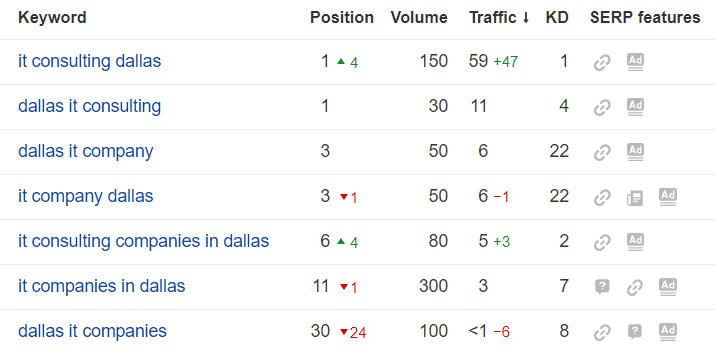In this edition of From the Driver's Seat, I’m going to cut the bullcrap on content marketing for managed IT service companies, calming your fears of high word count.
I hear some variation of that complaint all the time. Usually when I’m trying to encourage a managed service provider client to let me give their blog or website readers rich, relevant and high-quality content. “No one reads.” I hear it after I’ve asked them to let me offer up 1,500, 2500 or even 5,000 words of relevant content.
And guess what…they’re right.
No, not literally. People still read. Someone somewhere is probably engrossed in ten hefty pounds of War and Peace or some other epic-length Russian novel right now. But ad agencies suck us into that minimal word count argument by giving us glossy magazine ads that consist of a catchy headline, pretty picture, couple lines of copy and an intense but thankfully brief call to action. Why? Because…
“No one reads anymore, Stuart.”
That means that they don’t read ads, amateurish chatter or other boring crap. They ignore content that’s out of their wheelhouse. Meaning, if you have a website that’s marketing vintage auto license plates and someone accidentally stumbles upon a 5,000-word blog post on, say, the history of license plate collecting during the metal-scarce war years of the 1940s, they’re outta here if they don’t know a license plate from a driver’s license.
Hell, they probably won’t read the first five words before they click off your site. If you’re selling vintage license plates, appealing to those who have absolutely no interest in the subject is just a waste of your valuable time. So why are you even worried about turning those (non) readers off?
But it’s a different story for those who find your blog post or website while surfing the Internet for relevant and in-depth information on the topic because they’re huge antique license plate nerds. If they find your long story to be chock full of fascinating and meaningful facts, figures, insights and market value predictions, you’ve got them hooked. They’ll hang on every one of those too many words and then find their way to everything else you’ve ever written on the topic.
Why? Because of your high quality and insightful content has just made you a subject matter expert where it matters most (to them). A thought leader in your (and their) area of interest. These new customers or yours will keep finding you online and continue to recognize you as their go-to person when they want to buy, sell or discuss vintage license plates.
The Wiki Syndrome
Do me a favor. Google each of these three search terms:
“Karl Marx.”
“Lisbon, Portugal.”
"Taxidermy.”
A person, a place and a thing. Each just chosen at random. You should notice immediately that the highest ranking entry of the results page for each Google search term is a Wikipedia page. Go ahead. Conduct the same Google search experiment for people, places or things of your choosing and see how often the same thing happens -- a Wikipedia page is the highest ranking result you see. Or at the very least that website is high on the first page.
That’s critical, that top or near-top ranking. Multiple studies have shown that people aren’t patient with Google search results. They’ll look at the first few non-ad entries and ignore everything else. If you’re on page four of search results, forget about it. You’re invisible.
A critical reason that Wikipedia places so prominently on so many searches is that the Google algorithm favors the content, which tends to be often rich, relevant and comprehensive. Wiki writers aren’t afraid to write engaging content. And write. And write.
The word count on Wikipedia pages can be incredibly high. For instance, that Karl Marx article you checked out? It’s got about 13,000 words -- on a single scroll-down page. And that’s only the body of the article, not the lengthy bibliography and external links listings that follow.
Rich, Relevant, Interesting
Thirteen-thousand words. Is everyone going to read that much content on a single web page? Of course not. But those who are interested in the life and times of the first commie just might. Or at least they’re likely to spend a fair amount of time skimming that Marx page and return to Wikipedia the next time they need more engaging information on just about anything.
The Google algorithm likes Wikipedia content so much because it’s rich, relevant, and engaging -- or at least those readers with interest in Karl Marx will think so. Or Lisbon, Portugal. Or taxidermy. Or…quite a range of topics.
So Cut the Bullcrap
If you want your SEO to skyrocket, then cut the bullcrap and focus on long-form content. How else would this one company cut through all the crap from other IT companies in Dallas?
Your web page could have the same effect on your potential customers or clients if you lose your fear of writing full, rich content. Give them the whole story in the number of words required to get it out, and let them see you as the subject expert, the proven authority on areas of commerce that interest them.
Here’s the content marketing bottom-line truth when it comes to word count: 100 words is too much if your content is boring, flat and pointless. And 10,000 words is barely enough if you’ve got readers hanging on every word.
So cut the bullcrap on word count anxiety. Just write good stuff, get your story told and trusted your readership to find you and appreciate your expertise.
Final Proof
And now for one last proof point on how wordy web articles can work for you if you do those words right. You’re here, aren’t you? You’ve read up to this point of my longish web article, which means you’ve somehow gotten through well over a thousand words, and there’s a few more to go.
It hasn’t killed you, has it? I’m thinking you don’t regret too much all the time you’ve spent reading this. So stop fearing word count and start making quality count.
As a leading content marketing expert, Stuart Crawford writes rich, relevant and insightful content for a global client base of IT service companies.




